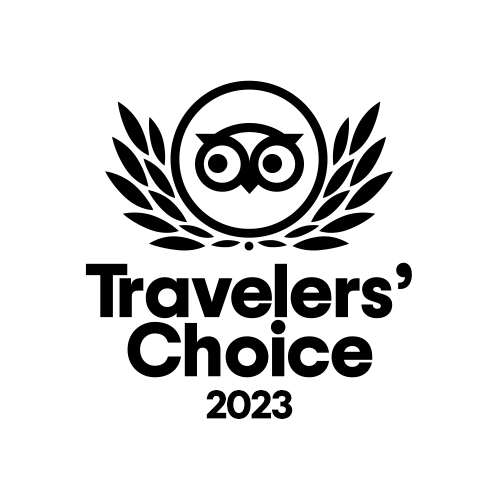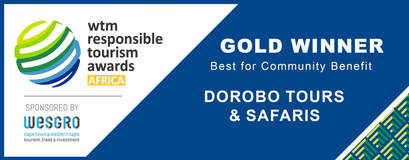International bestselling Author & 30-year Dorobo client
"If you want to travel with a Safari company you can trust, you can confidently trust Dorobo. They shape your safari into a source journey unique for each person; Unfiltered, Uncensored and Unbelievable"
- Richard Lieder
Incredible Wildlife Encounters
Encounter the Best: Explore Tanzania's Renowned Parks & Marvel at its Diverse Fauna from Elephants to the insects on the ground
Connections with People and their Landscapes
Forge genuine and unscripted connections with both the breathtaking landscapes and the local communities as you embark on a safari adventure with us!
Actively Engaged Experiences
As well as watching wildlife from your safari car, we believe in mixing it up with more active activities like walking, canoeing, cycling that allow one a more intimate experience with nature.
Guided Journeys with Passionate Enthusiasts
Our guides are more than drivers; they're enthusiastic nature enthusiasts who adore every aspect of Tanzania. Steering clear of crowded spots, they navigate you through every park corner, ensuring a genuine, holistic encounter that goes beyond just observing.
Bush to Beach - Unveiling Natures Contrast
This seamless transition unveils nature's awe-inspiring contrasts - the raw power of the Savannah's untamed beauty juxtaposed with the soothing serenity of the Indian Ocean.
Embark on Unconventional Paths
Venture into uncharted territories, embracing unique routes that intertwine adventure and discovery in ways both unexpected and exhilarating!
Welcome to Dorobo Safaris
|
Dorobo specializes in offering an authentic and immersive experience, forging connections between our clients and the local communities deeply rooted in the land. Our goal is to establish enduring partnerships built on fairness and transparency, enabling genuine and uncontrived interactions. Through this approach, we have cultivated a unique blend of traditional wisdom and scientific understanding, enriching our knowledge of wildlife, nature, and the environment. Committed to socially responsible travel, Dorobo minimizes its footprint in the areas where our mobile camps are established.
|
|
|
|
Adventures and Walking Journeys with Dorobo
At Dorobo our clients are our number one priority and we ensure that all our safaris are tailored to the needs of an individual by customizing each safari to suit our clients needs. We also offer Walking Safaris a unique experience that allow you to connect with nature on a deeper level. Walking in the bush provides a great complement to the amazingly close encounters one has on traditional vehicle game viewing drives. In addition to walking in community wilderness areas, we offer great walks in the Serengeti, Tarangire, Ruaha and Katavi National Parks in Tanzania, East Africa.
Dorobo Safaris Legacy of Cultural Engagement and Conservation Initiatives
Dorobo Safaris was started in the early-1980′s, in the early days of the development of Tanzanian ecotourism. Then, as now, Dorobo focused on developing unique and personal experiences ‘off the beaten track’ involving local cultures, ecosystems, and wilderness areas. Even at this time it was clear that numerous threats from expanding human populations and economic activities, such as agriculture and charcoal burning, posed a threat to sustainable livelihoods and to conservation of northern Tanzania’s extraordinary biodiversity and wildlife. By 1991, Dorobo Safaris had worked to initiate the first joint venture agreements with local Maasai villages providing payment in exchange for access to village lands for tourism. These involved the villages setting aside large concession areas where agriculture and charcoal burning were prohibited, but other activities such as seasonal livestock grazing could continue.
At Dorobo our clients are our number one priority and we ensure that all our safaris are tailored to the needs of an individual by customizing each safari to suit our clients needs. We also offer Walking Safaris a unique experience that allow you to connect with nature on a deeper level. Walking in the bush provides a great complement to the amazingly close encounters one has on traditional vehicle game viewing drives. In addition to walking in community wilderness areas, we offer great walks in the Serengeti, Tarangire, Ruaha and Katavi National Parks in Tanzania, East Africa.
Dorobo Safaris Legacy of Cultural Engagement and Conservation Initiatives
Dorobo Safaris was started in the early-1980′s, in the early days of the development of Tanzanian ecotourism. Then, as now, Dorobo focused on developing unique and personal experiences ‘off the beaten track’ involving local cultures, ecosystems, and wilderness areas. Even at this time it was clear that numerous threats from expanding human populations and economic activities, such as agriculture and charcoal burning, posed a threat to sustainable livelihoods and to conservation of northern Tanzania’s extraordinary biodiversity and wildlife. By 1991, Dorobo Safaris had worked to initiate the first joint venture agreements with local Maasai villages providing payment in exchange for access to village lands for tourism. These involved the villages setting aside large concession areas where agriculture and charcoal burning were prohibited, but other activities such as seasonal livestock grazing could continue.
41 Years of Dorobo Safaris: Connecting People, Wildlife, and Education in the Heart of Tanzania's Natural Wonders
|
Contact Us
Arusha Offices (+255) 683 893 722 Headquarters Plot 2534, Oloresho, Olasiti, Arusha, Tanzania. |
© COPYRIGHT 2024 DOROBO TOURS & SAFARIS
|







